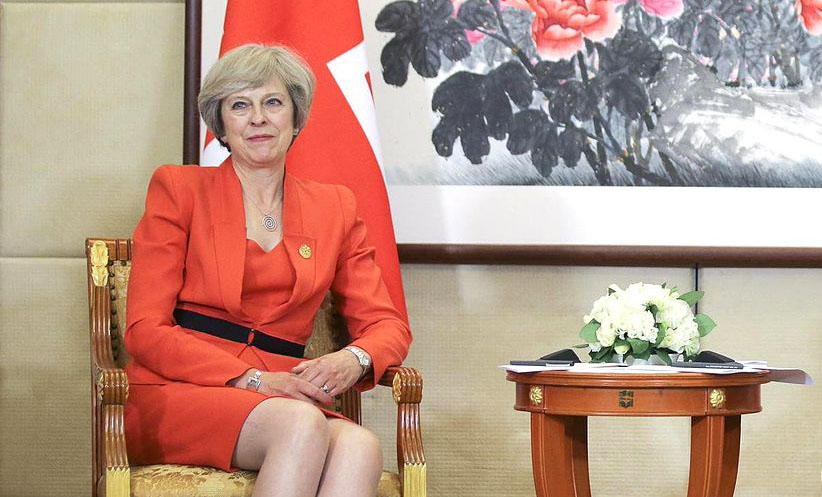
The Prime Minister has cautioned the British public to prepare for a 'no deal' scenario when leaving the EU.
Prime Minister Theresa May said the country must be prepared for "every eventuality", as the government published papers on future trade and customs arrangements in the event of a 'no deal'.
She reinforced her long-held position that walking away without a deal is a possibility.
Ms May admitted she expected the deadlocked negotiations to drag on for another year before any possible breakthrough.
She told MPs on Monday (9 October) in the House of Commons: "While I believe it is profoundly in all our interests for the negotiations to succeed, it is also our responsibility as a Government to prepare for every eventuality, so that is exactly what we are doing.
"These white papers also support that work, including setting out steps to minimise disruption for businesses and travellers."
Customs checks
According to the papers, steps to minimise disruption under a 'no deal' Brexit scenario would include customs declarations and custom checks.
The document read: “Traders that currently trade only with the EU will be subject to customs declarations and customs checks for the first time.”
“The impact is likely to be greatest where goods are travelling in vehicles (eg HGVs, vans, etc).”
It added: “It would not be desirable to hold vehicles for any length of time at ports to present goods to Customs for export. Therefore, presentation would take place inland as much as possible, and at the port there would be a means to confirm that goods have left the UK.”
A bill would ensure “the UK can charge customs duty on goods (including on goods imported from the EU).”
European supply chains are a key part of delivering the goods that UK consumers buy every day. The majority of those goods are ones that need to be transported quickly, particularly food.
The British Retail Consortium (BRC) said it is essential to ensure UK consumers are able to buy the products they want after Brexit.
With annual customs declarations in the UK estimated to rise from 55 million to 255 million from March 2019, a 'no deal' Brexit could mean new delays at ports of up to two to three days, the group warns.
'Alarmed'
The agricultural industry has demanded more details if farmers and growers are to have the certainty to plan and invest in their businesses in the future.
NFU President Meurig Raymond said: "Farmers and growers are becoming increasingly alarmed at the prospect of a “no deal” departure from the EU.
"The resulting disruption to trade, access to labour and business stability would pose a fundamental threat to the viability of many of their businesses."
NFU Cymru president Stephen James said it was 'vital' for the UK to remain within a customs union with the EU until a comprehensive deal with agreed.
"Welsh agricultural businesses need some certainty to plan ahead," he said.
"Farmers, processors and everyone involved in the food industry in Wales need to make decisions now with some idea as to what marketing options will be open to them in 2019.
"A 'no deal' scenario with our main trading partner is not an option for Welsh agriculture," said Mr James.
'Benefit'
However, farming minister George Eustice said British agriculture would be 'fine' and may even benefit from leaving the European Union in the event of a 'no deal' scenario.
Mr Eustice, who was speaking at the AHDB meat exports conference in Warwick in July, said the agriculture sector would benefit from tariffs imposed under World Trade Organisation (WTO) rules.
"It sounds surprising," he said. "The reason for that is the competition from Irish beef, competition from salads from Spain or vegetables from France, goes down and actually gives a firming of farmgate prices in the UK.
"Our priority is to get that Free Trade Agreement but if during the course of development of agriculture policy it became apparent that we might be coming out on WTO scenarios, obviously at that point we would start putting in some thinking as to what the domestic policy response to that situation would have to be."
